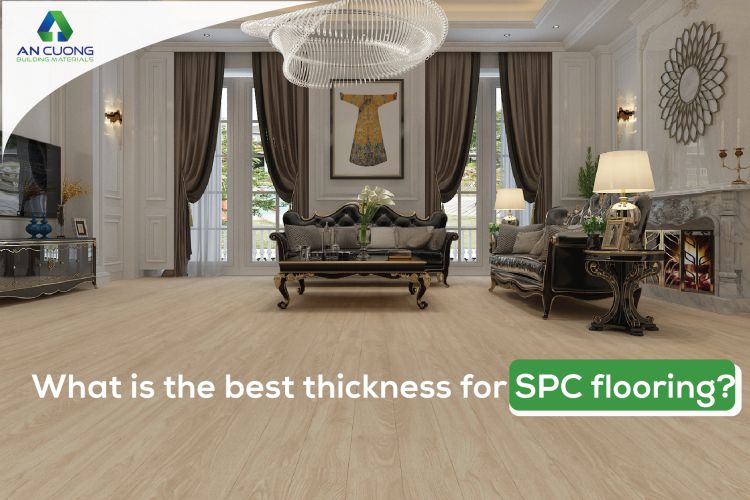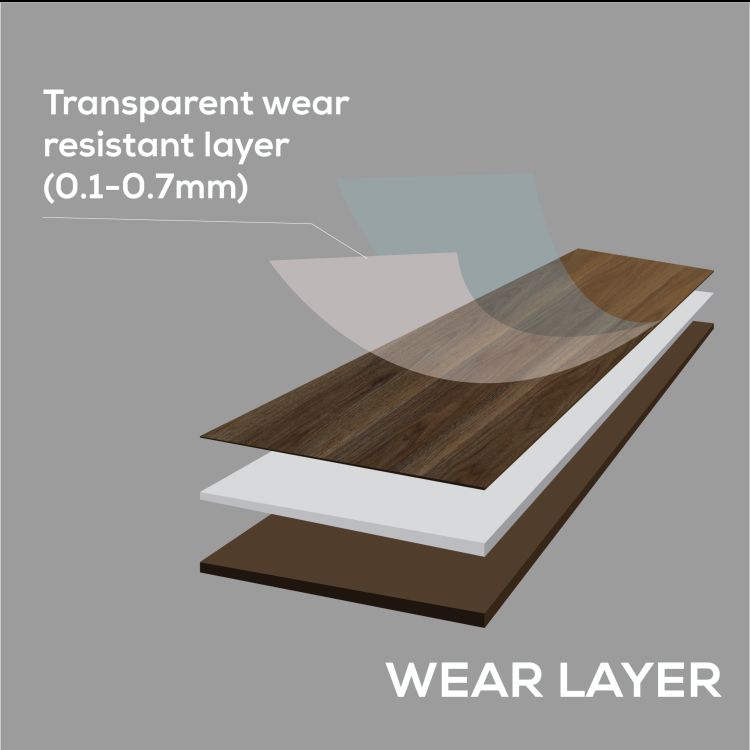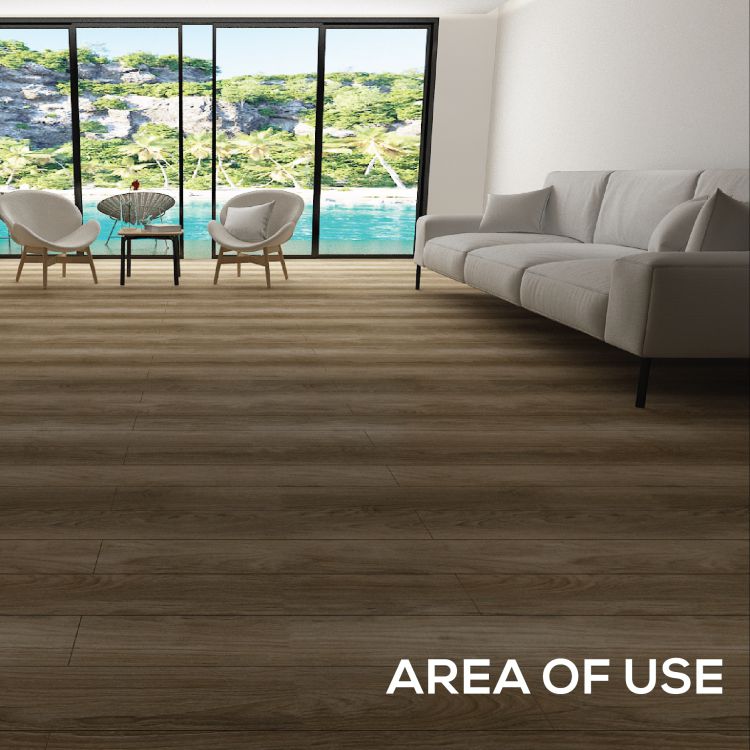SPC flooring is available in a number of thicknesses ranging from 2mm to 8mm+ thick. When you buy SPC flooring it can be difficult to decide which one is right for you.
Just as laminate flooring, the thicker the floor, the sturdier it is, but this is not the main factor in determining durability. When choosing a SPC flooring thickness, there are a few things to consider. Keep reading to find out what questions to ask.
SPC Flooring Thickness
SPC flooring comes in thicknesses ranging from 4mm to 8mm+. The biggest factor to keep in mind is that the thickness does not determine durability – the wear layer does.
With that said, the thickness is an important factor to consider. There are several important questions you must ask yourself when deciding which thickness will be right for you:
– Where am I installing?
– Will there be a lot of foot traffic in this area?
– What type of subfloor do I have?
– What condition is my subfloor in?
– What type of SPC do I have?
As a general rule, a thicker SPC flooring will provide more stability and comfort underfoot. So if you are looking for flooring to refresh your low traffic bedroom, a thinner SPC flooring will work great for you. For areas that have more traffic and usage, such as entryways and hallways, you will want to choose thicker floor.

Type of rigid core SPC
With new advances in the plastic floor industry, there are several types of SPC floors that will impact your decision when it comes to thickness and durability. There are basic LVT’s and there are new, engineered types of vinyl. Floors with an engineered rigid core construction will have a more dimensionally stable core than a standard LVT.
With the rigid core constructions, you can find floors from 4mm to 8mm+. Although a rigid core SPC maybe 4mm, it will have a solid construction, which differs from the bendable LVT.
When it comes to a rigid core SPC flooring, the thickness isn’t as much of a factor, since the core is constructed with durability in mind.
Type of Subfloor
Your subfloor is also a very important part of choosing the thickness as well. If you have an even concrete subfloor, you can get a thinner vinyl flooring. This is because your subfloor is sturdy enough that you don’t need the extra support. However, if your subfloor is a thin, creaking hardwood, you should opt for the thicker vinyl for added stability and support.
Wear Layer of SPC Flooring

The durability of SPC flooring is determined by the wear layer. When shopping for SPC flooring, pay also attention to the wear layer. Just like the thickness, the thicker the wear layer, the more durable the floor will be. Make sure to choose features of the flooring that’s right for you and your application, using the same questions posed above.
The wear layer is the protective coating on top of the decorative layer of the SPC flooring. The most popular is a urethane-based layer that protects the floor against scratches, stains, and scuff marks. The wear layer keeps the original look of the floor longer, providing a maintenance-free finish.

Final Tips
If you are installing in a high traffic area, it is recommended you choose a thicker SPC floor as it will provide more sturdiness and support. Thicker SPC floors are also more forgiving to imperfect subfloors. If you are concerned about your subfloor, choose a thicker floor, however, we always suggest to install new floors a subfloor that is even, clean and dry.
Remember these tips and choosing the right thickness of SPC flooring will be an absolute breeze!









